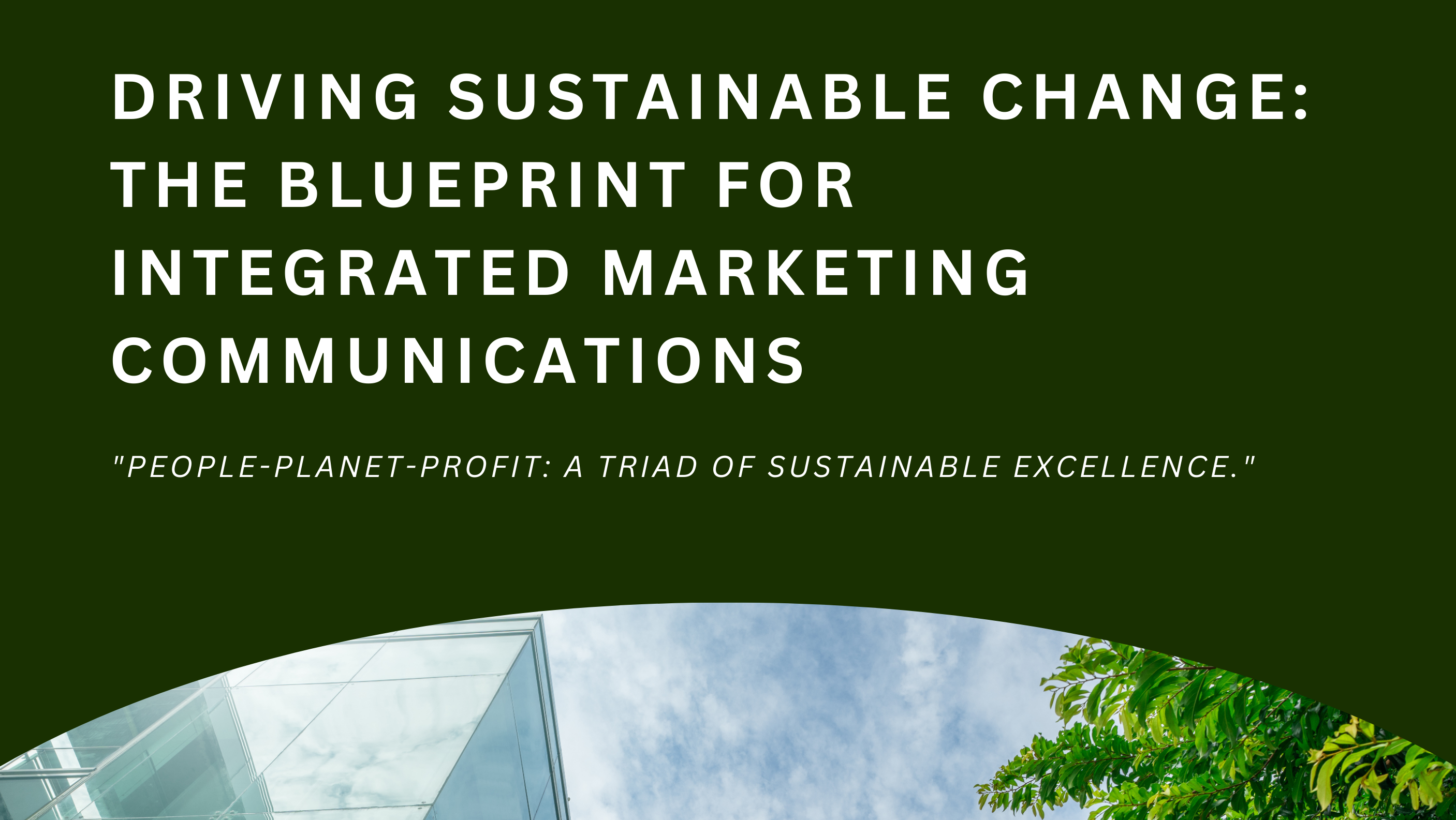During the spring semester of the '23 to '24 academic year, my teammates and I were tasked to develop a marketing strategy for LuvSeats, a ticket-purchasing website for concerts, events, and more. Our business plan placed third overall in the nation based on our stratigizing of digital and in-person advertising.
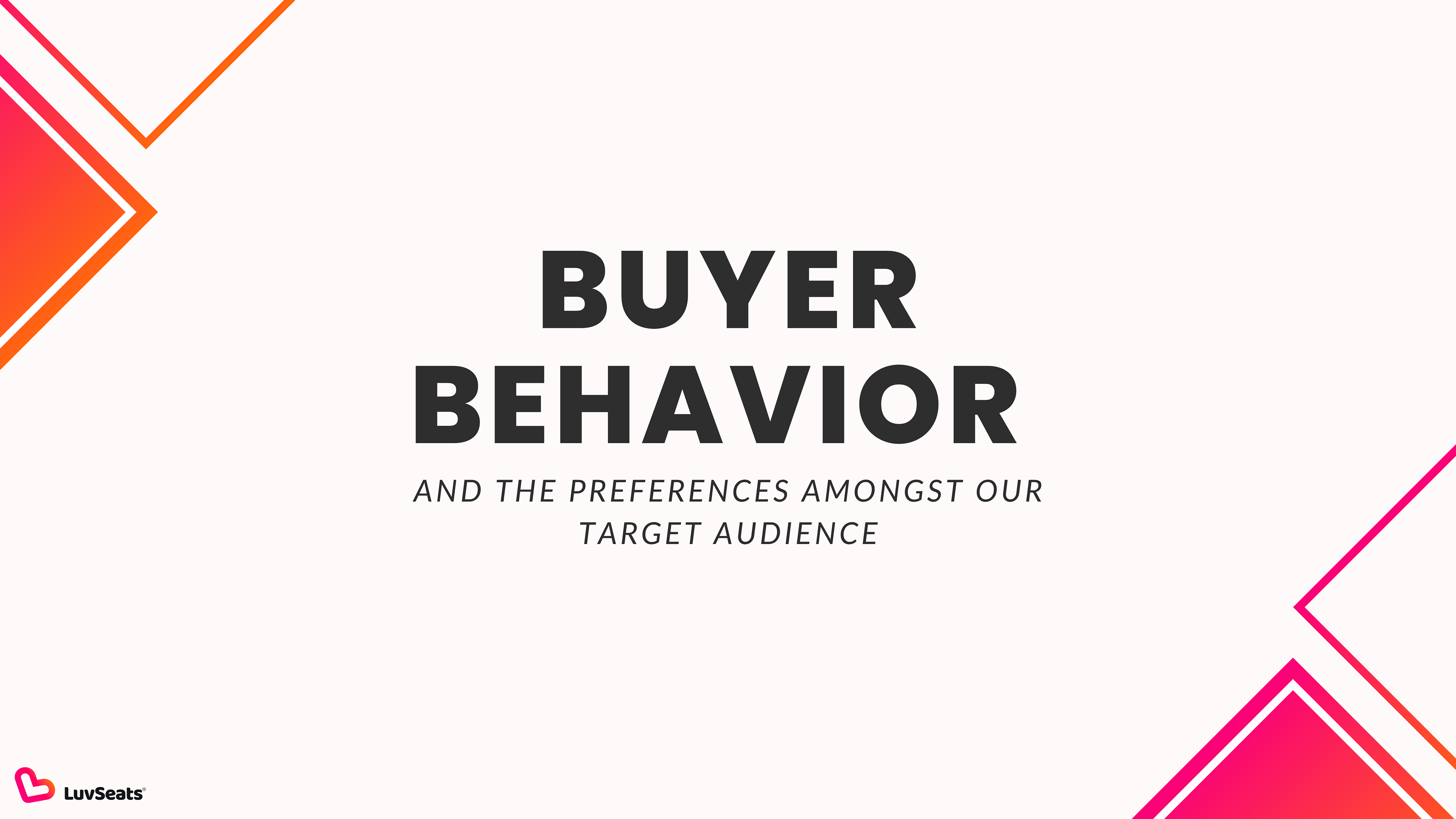

Student Profiles
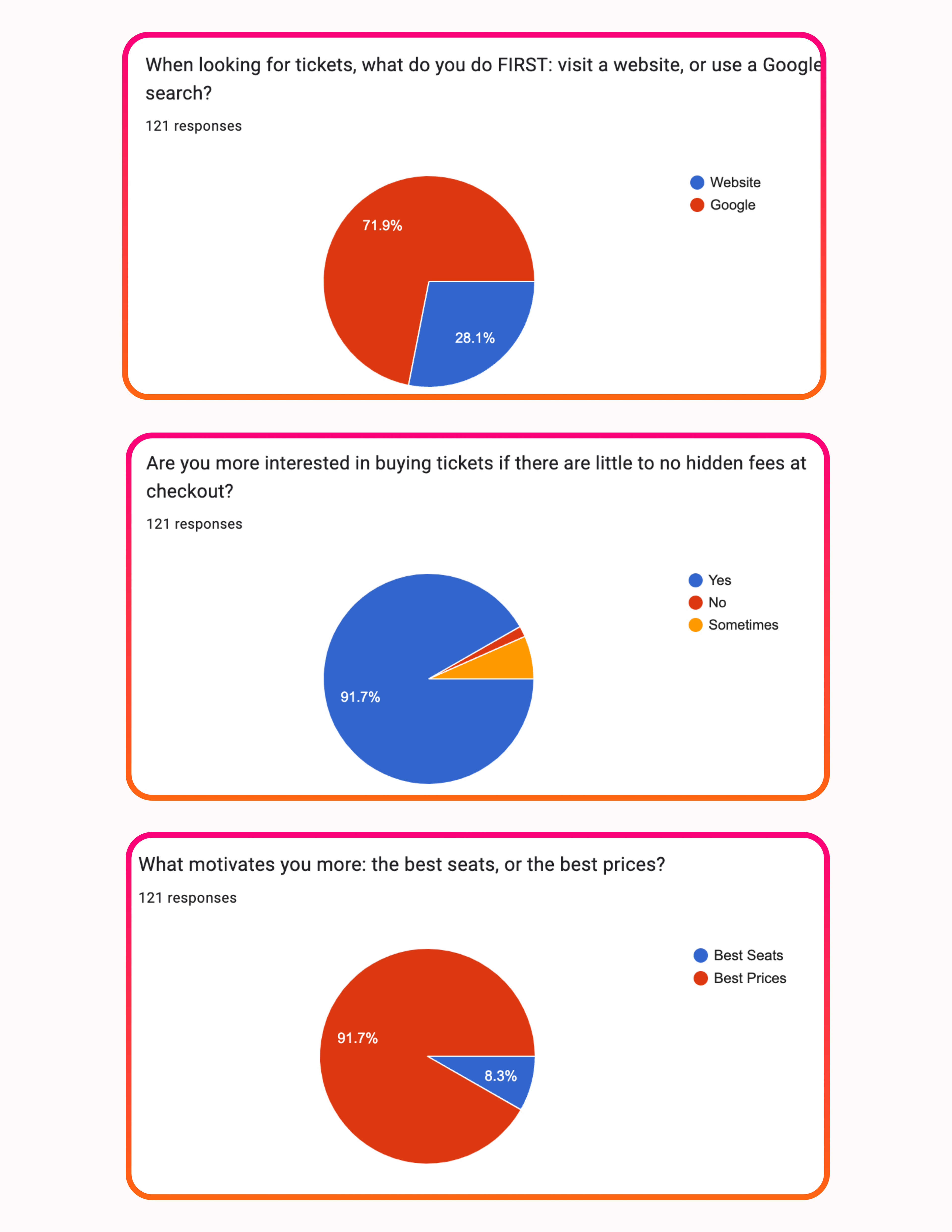
Survey Data Examples
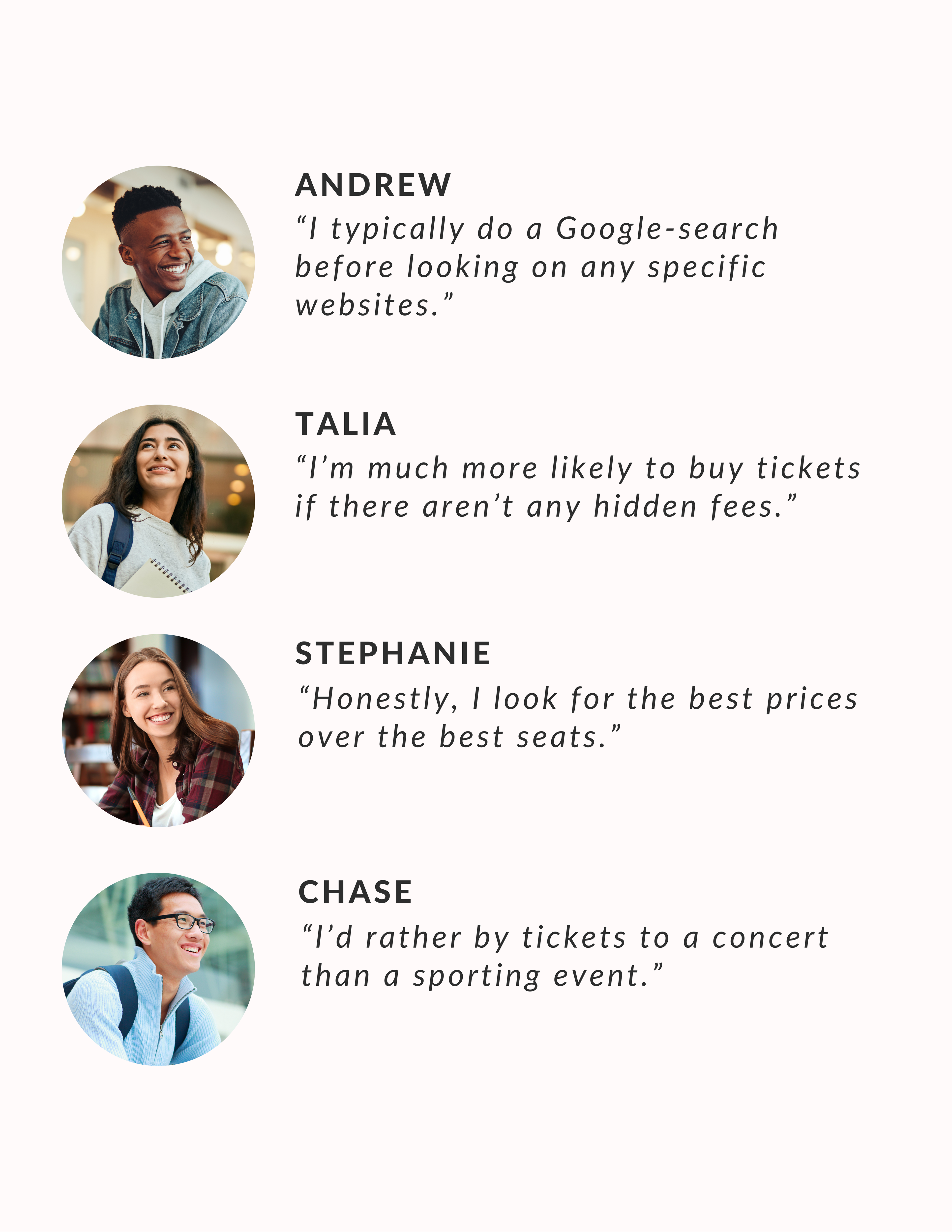
Student Quotes
Before crafting our strategy, we designed a survey targeted at our key audience—college students. This allowed my teammates and me to develop a business plan tailored specifically to the LuvSeats demographic. The visual data, student profiles, and quotes from their responses, shown above, were crucial in shaping our marketing strategy.
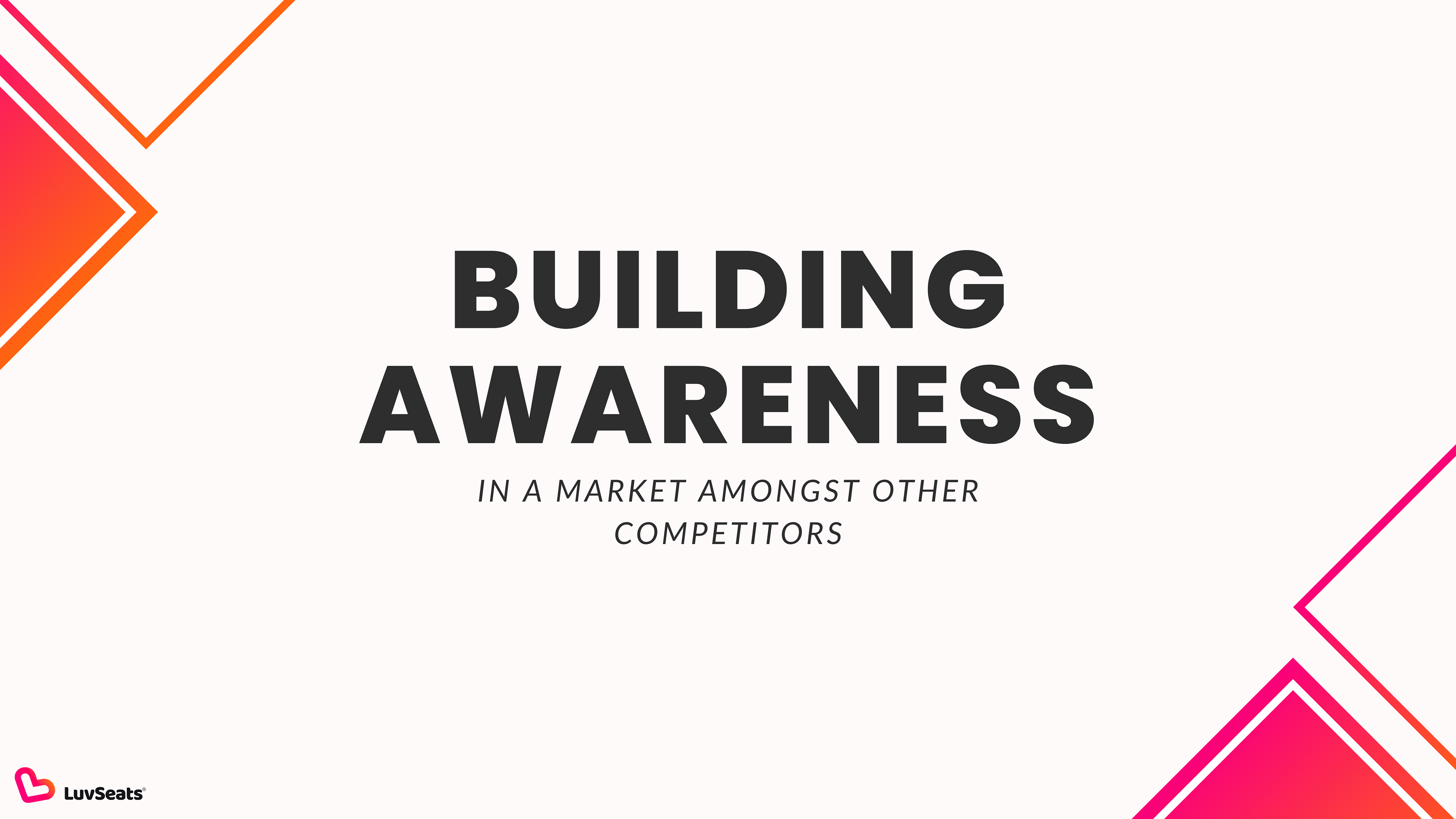
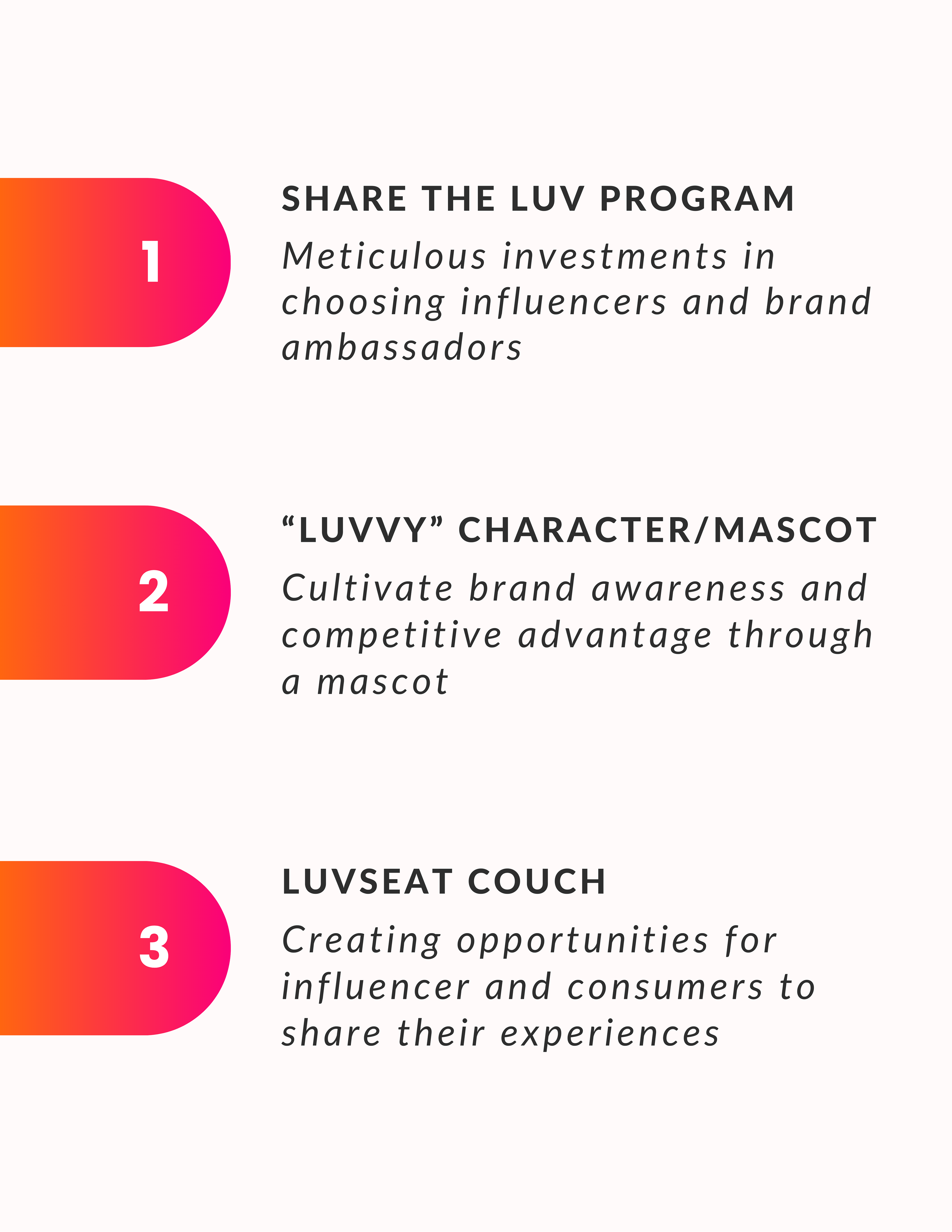
Key Strategy Points
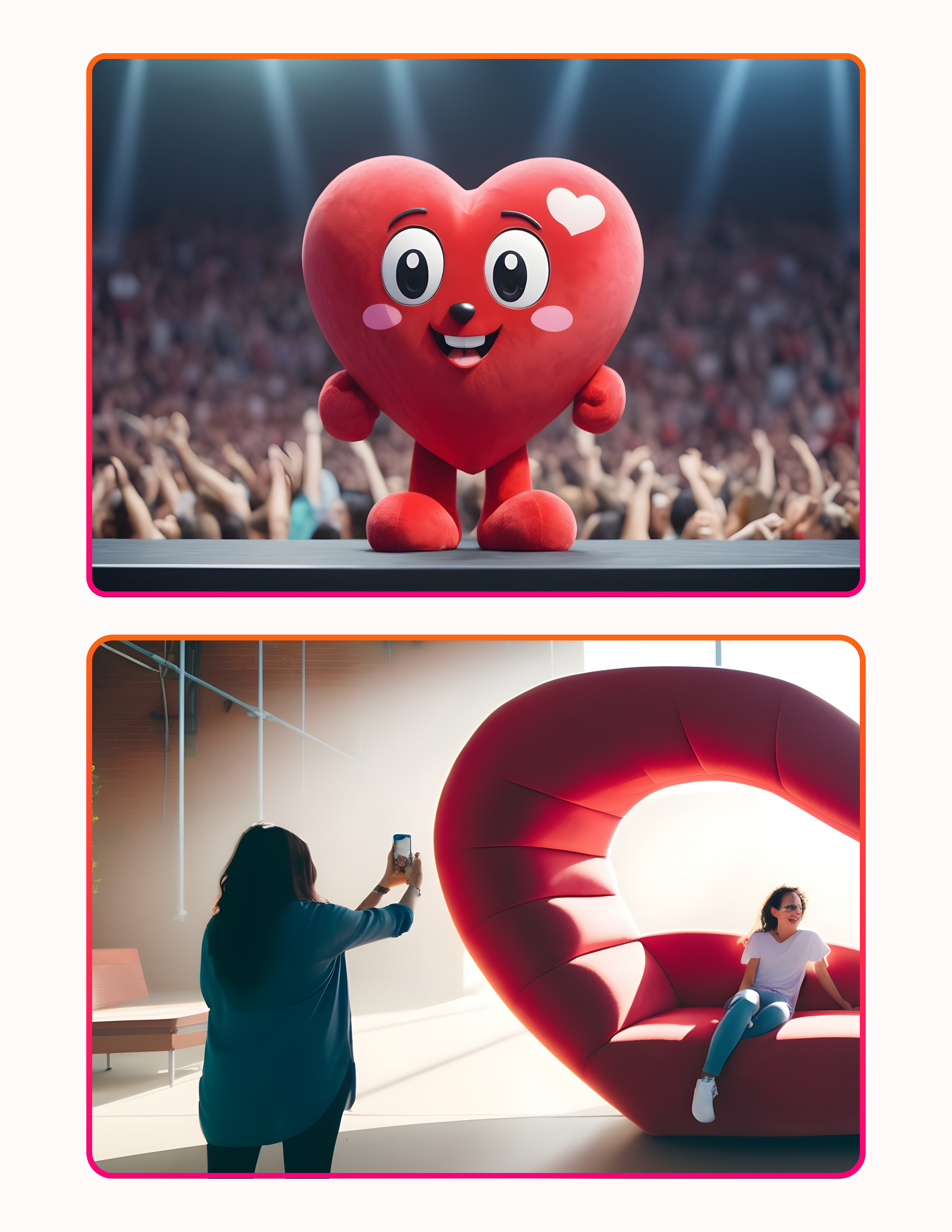
AI Mock-Ups
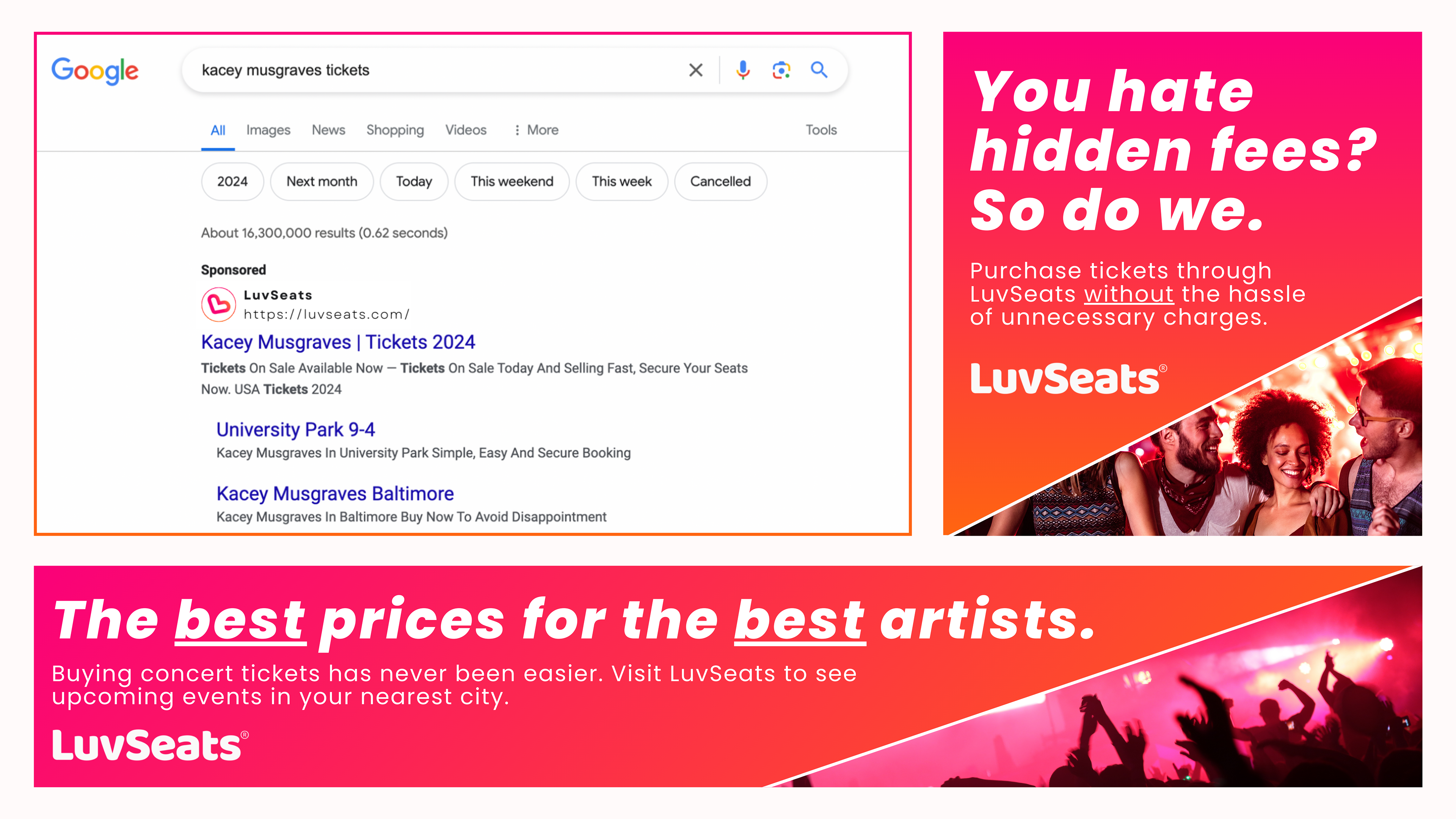
Google Ads Examples
After completing our primary research, we began crafting our business plan by devising strategies to enhance consumer awareness. These strategies included launching a social media ambassador program, creating a distinctive mascot, setting up an interactive photo booth at events, and implementing targeted online advertisements. Above, you’ll find examples of these advertisements, along with mockups of the mascot and photo booth, created using generative AI.
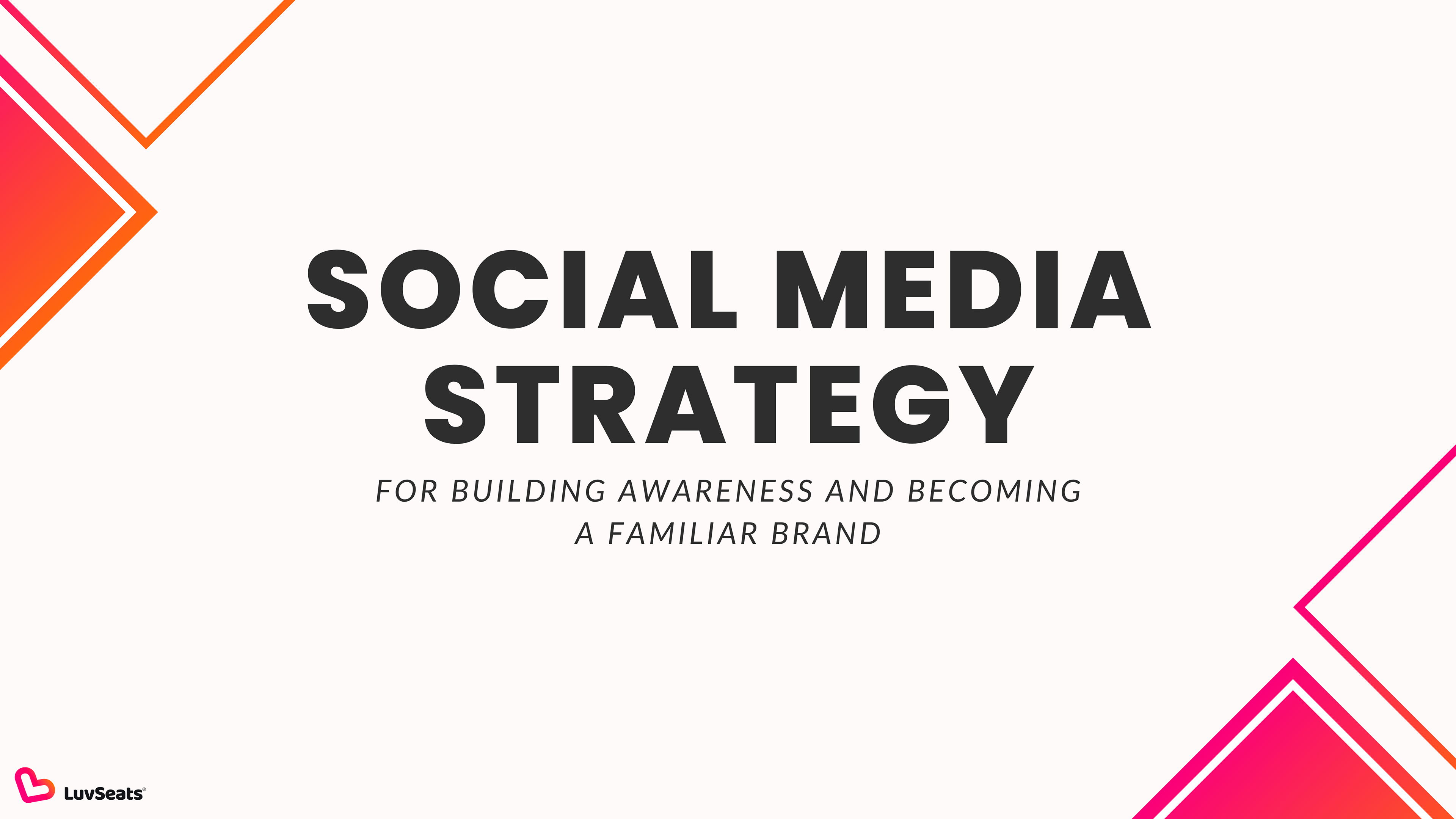

Key Strategy Points
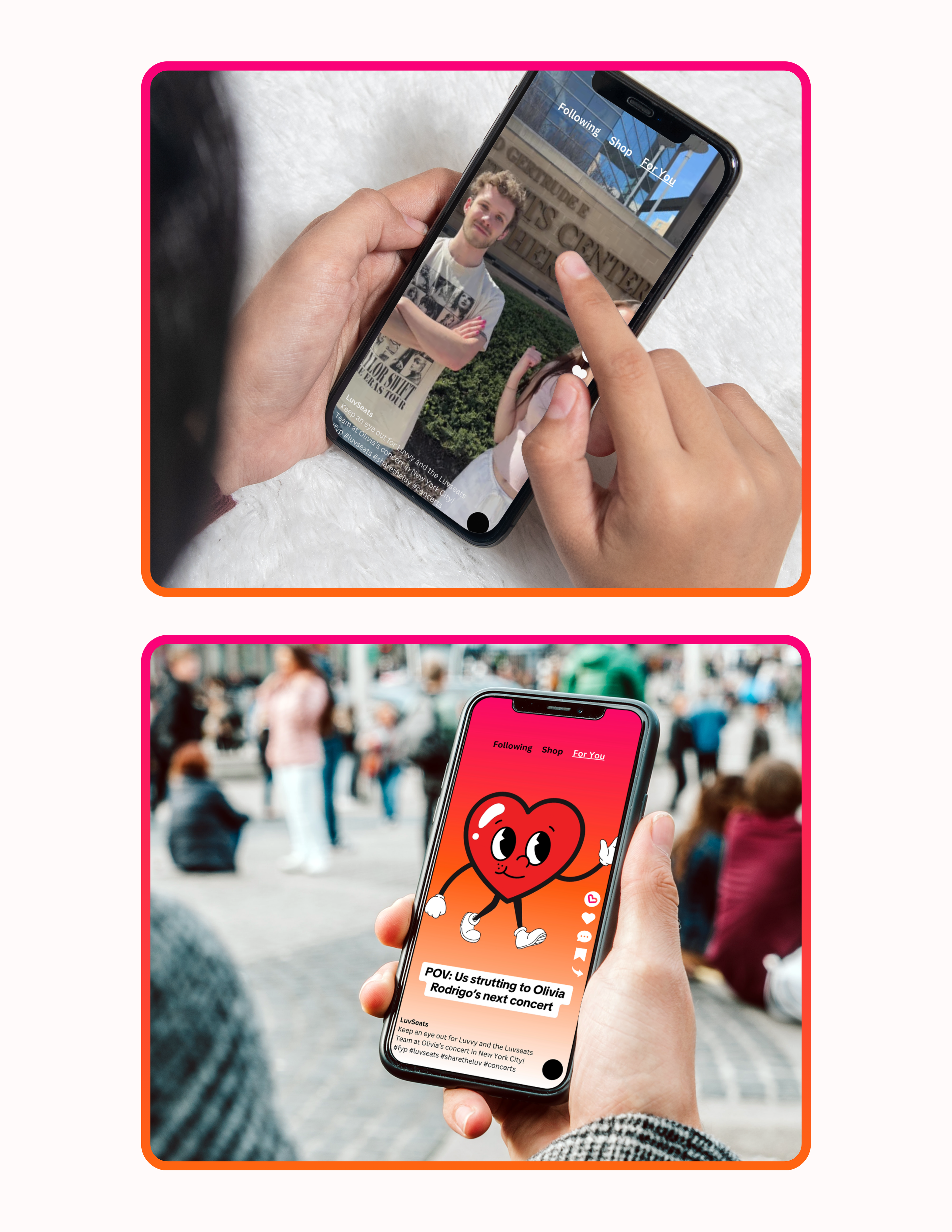
TikTok Mock-Ups
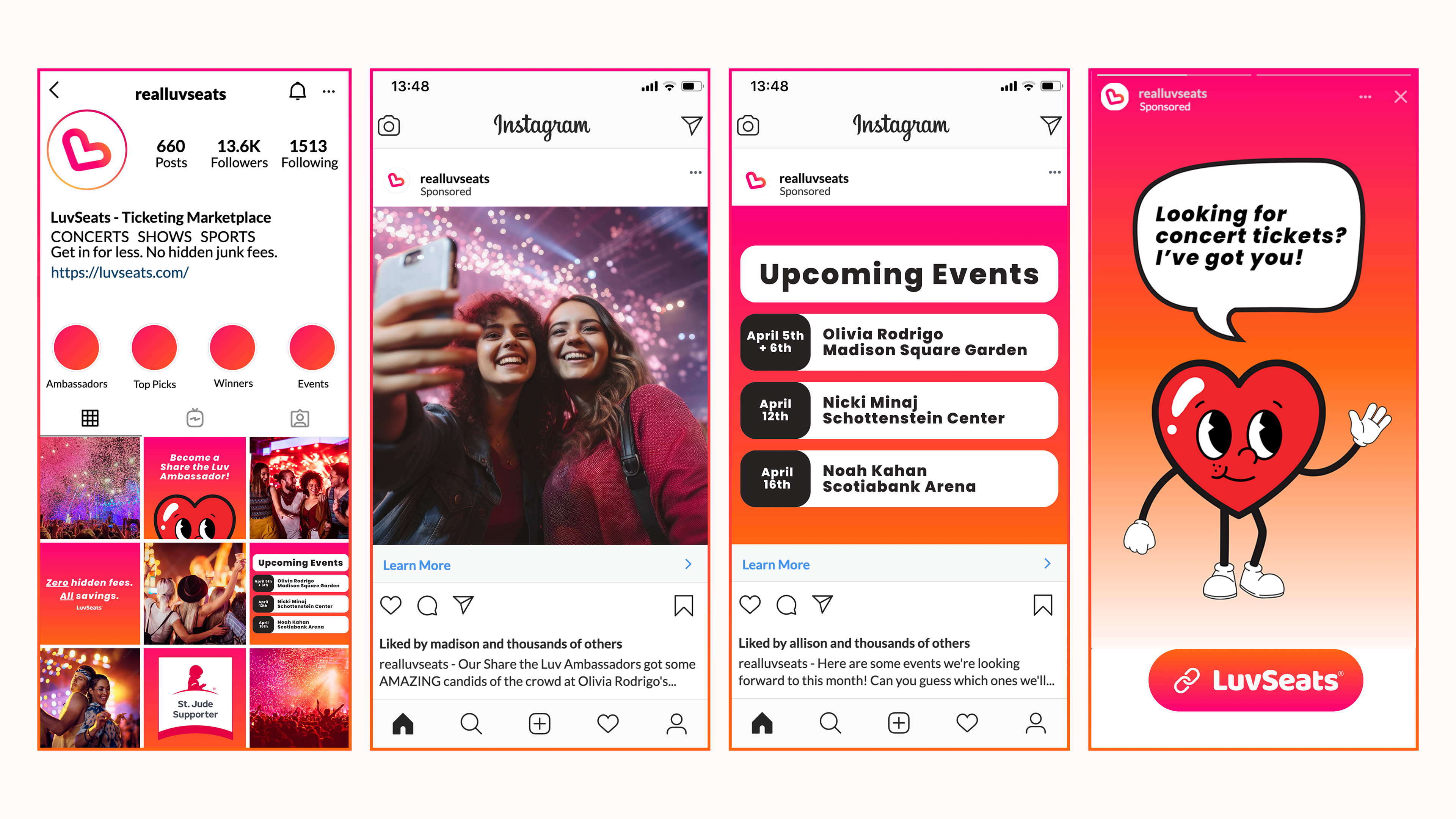
Instagram Grid + Post Examples
In addition to our in-person marketing efforts, we aimed to leverage social media to promote LuvSeats to our target audience. Recognizing that platforms like TikTok and Instagram are pivotal for online marketing, we chose to focus on these channels. Our strategy involved capturing authentic event footage, crafting a cohesive and recognizable brand identity across platforms, and developing engaging, interactive content. Our goal was to establish a compelling social media presence that would draw our target audience to choose LuvSeats over other ticketing websites.
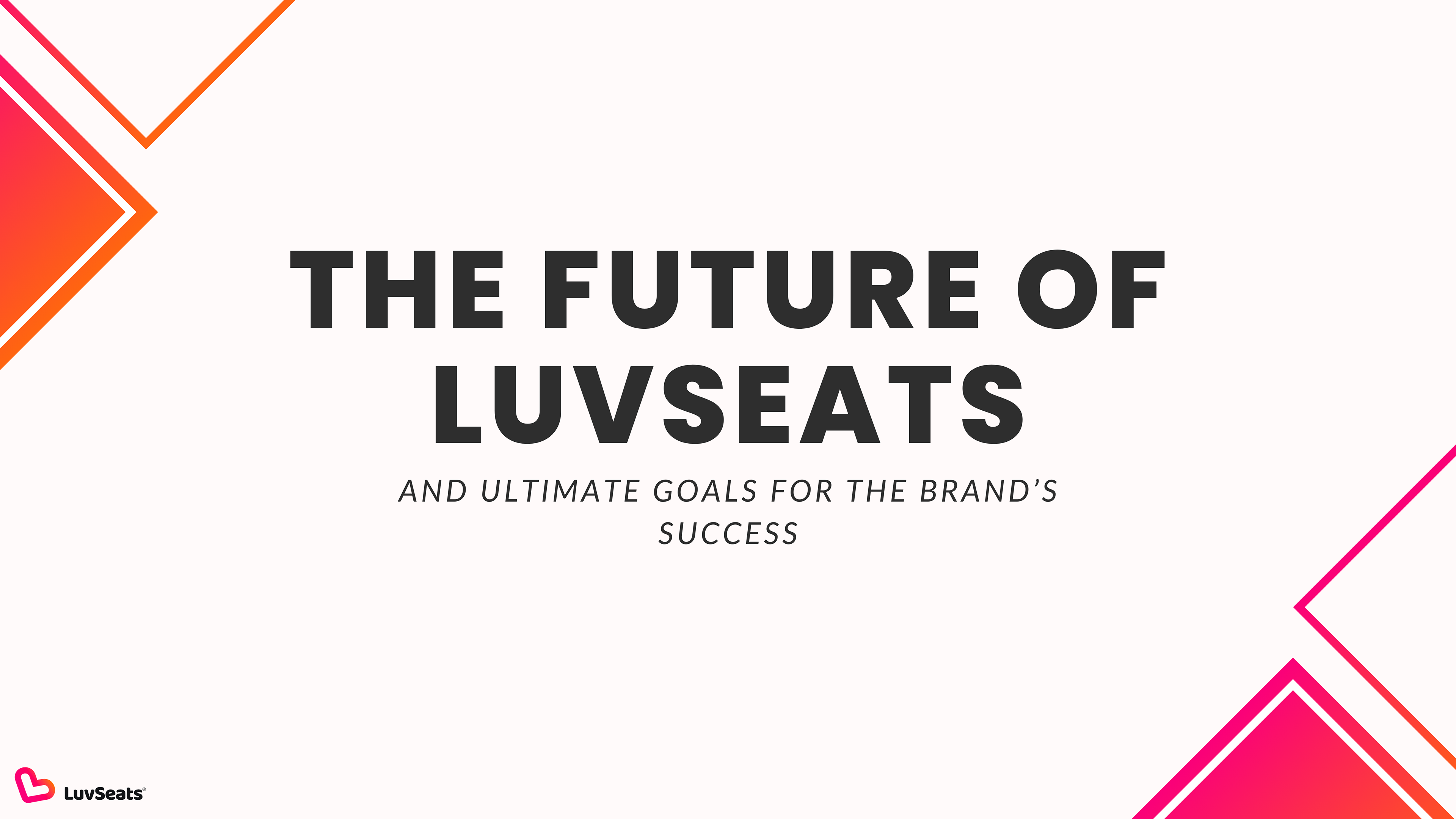
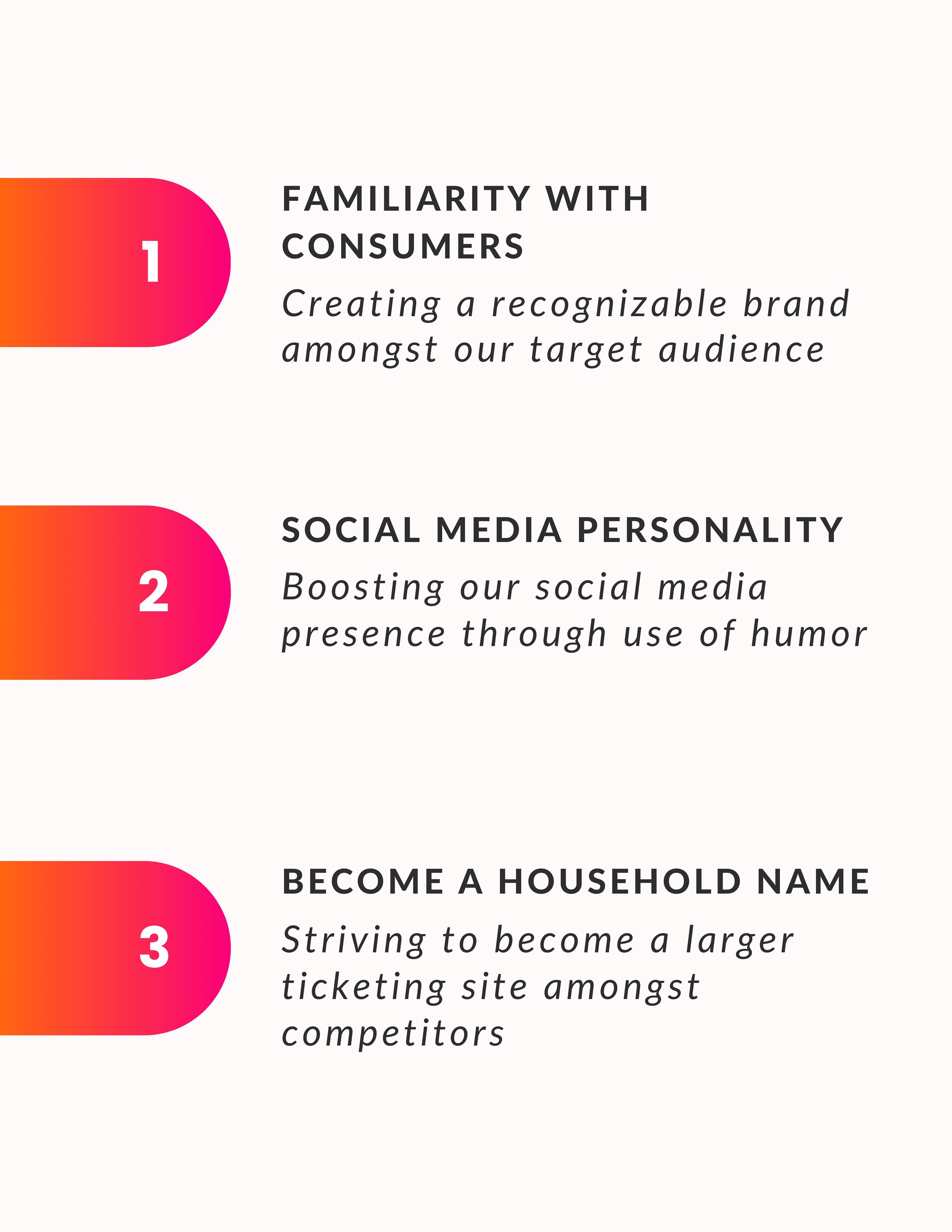
Future Goals
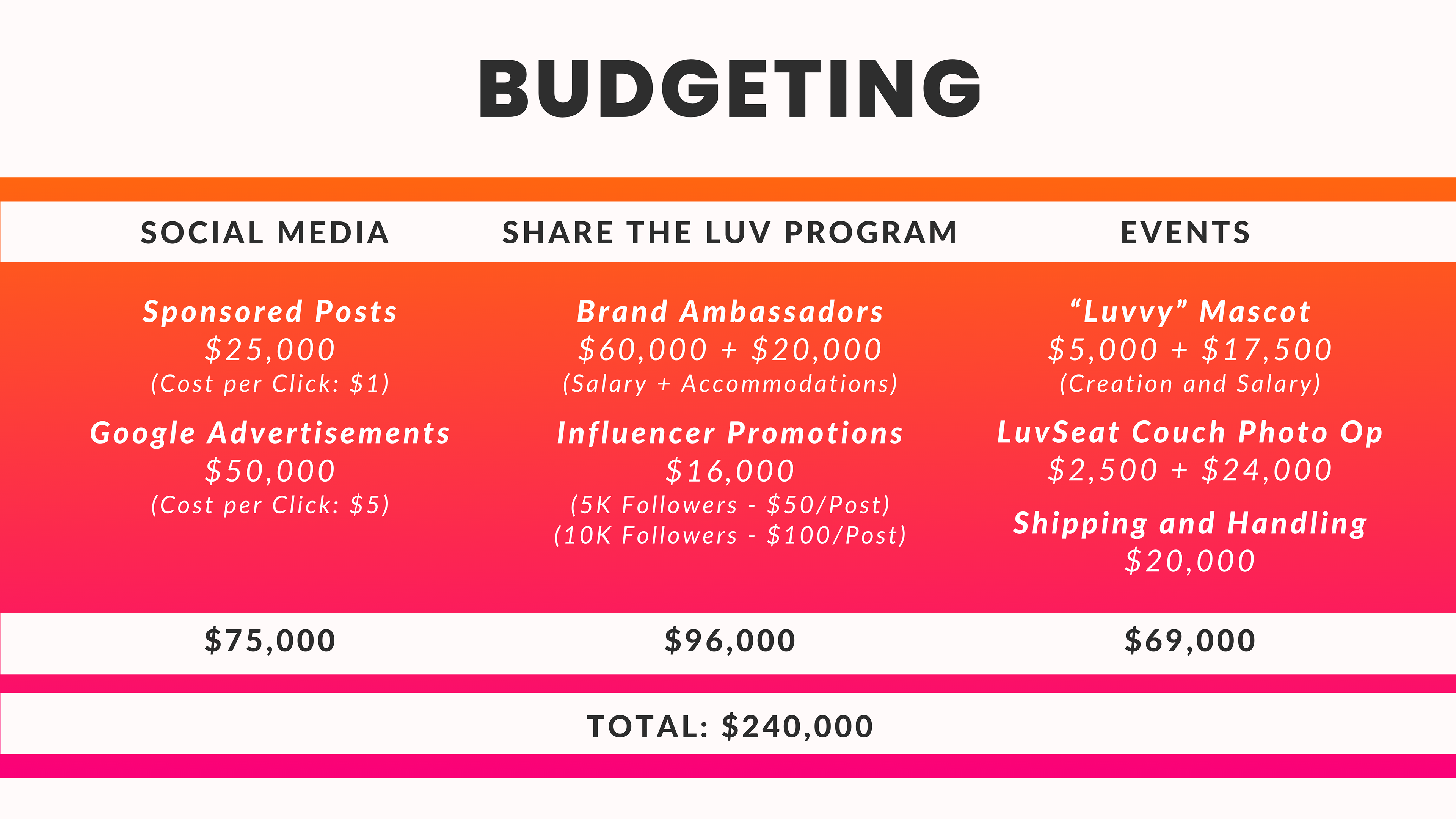
Budget
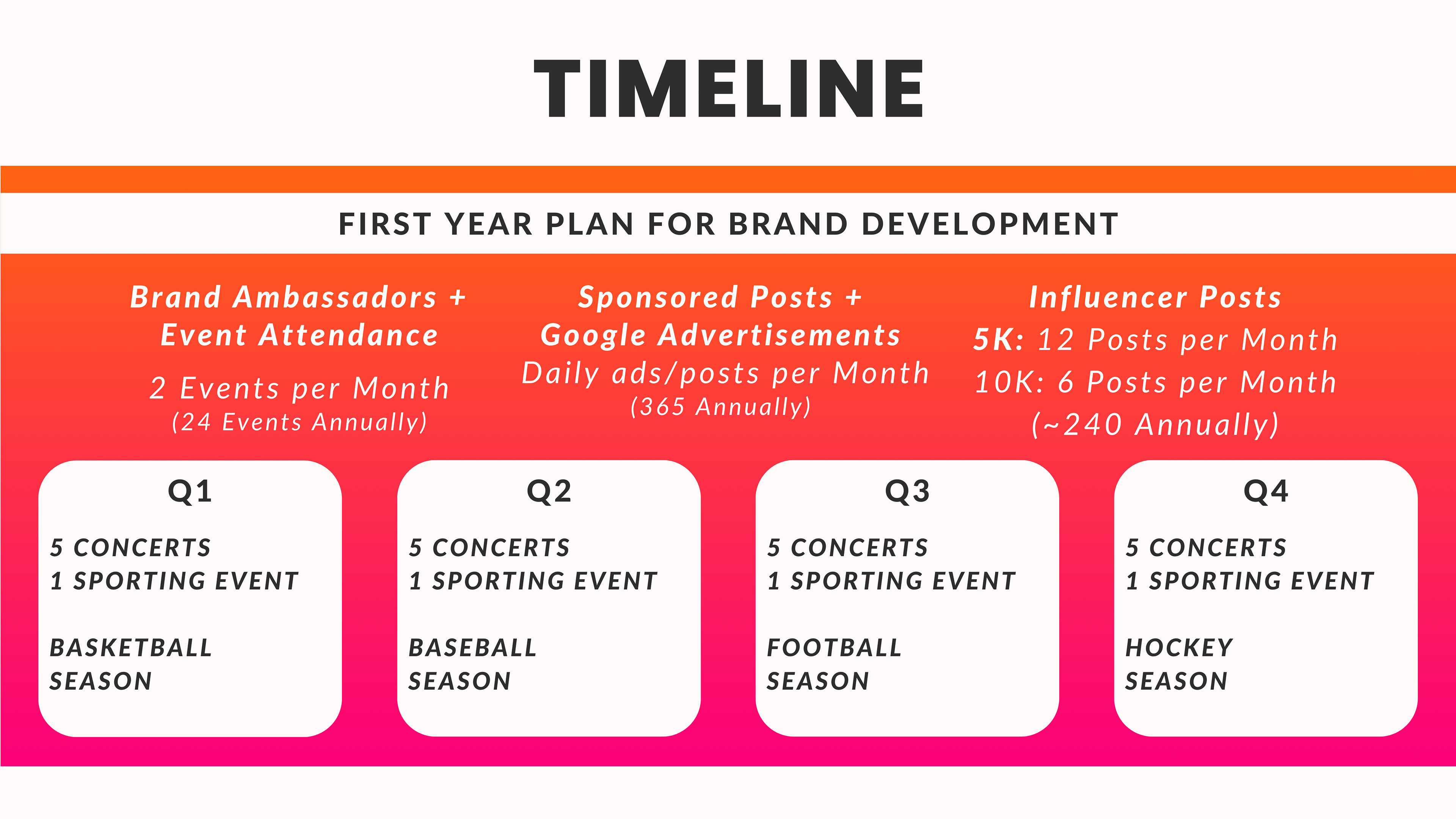
Timeline
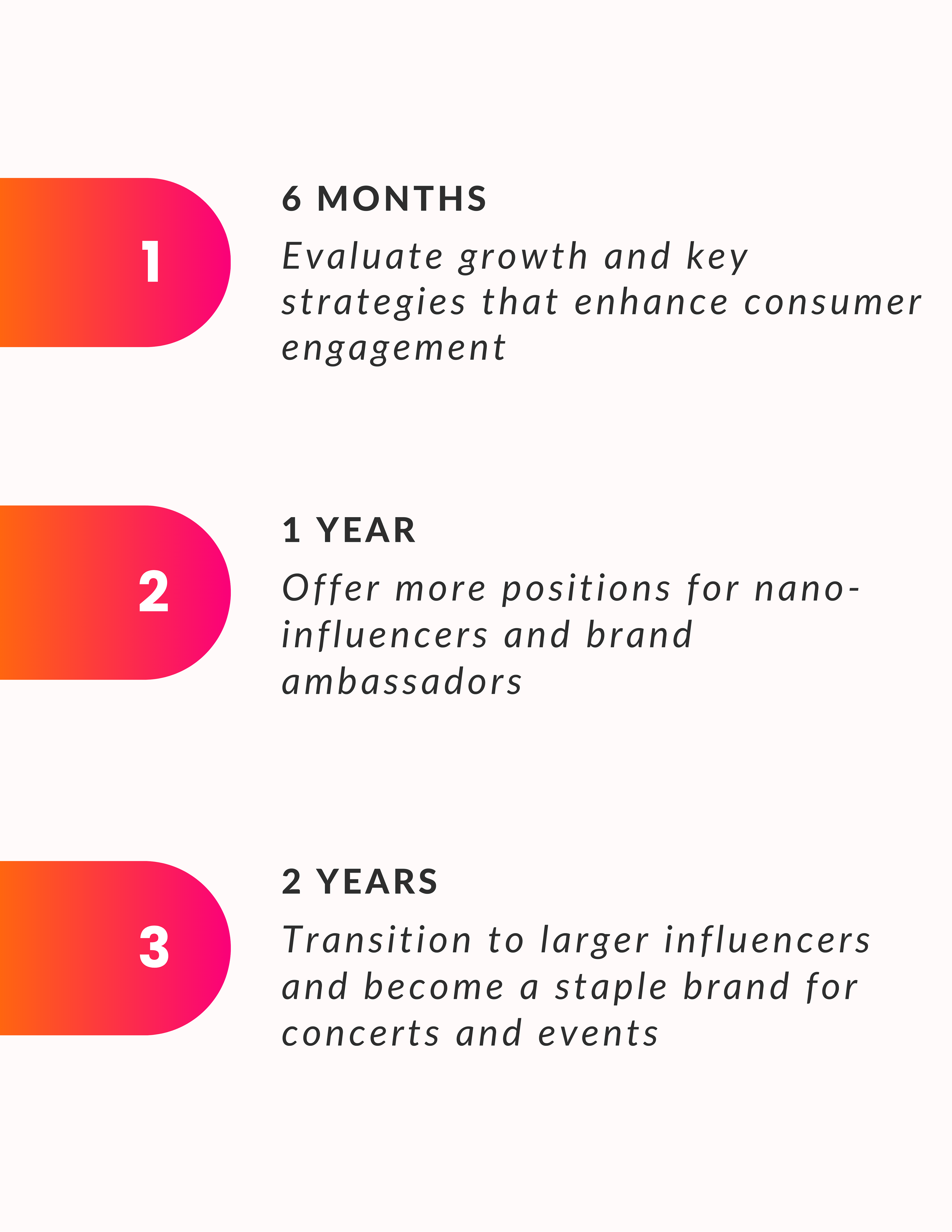
2 Year Outlook
To wrap up our marketing strategy for the LuvSeats brand, we distilled our plan into three key objectives: to build familiarity with our target audience, to cultivate a strong and engaging social media presence, and to establish LuvSeats as a leading name in the ticketing industry. Additionally, we outlined a detailed budget for the necessary expenses and created a quarterly timeline for the company’s first year. Finally, to ensure long-term success, we also developed a comprehensive evaluation plan spanning two years.
The finalized case presentation can be viewed on my LinkedIn below.
